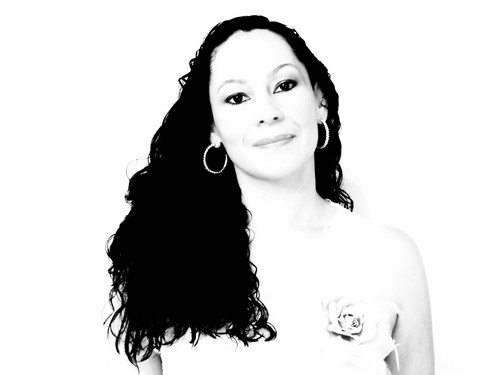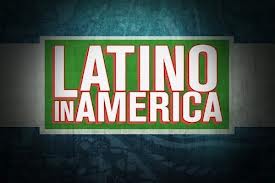While Latinos do share culture, language and history, Latinos as a whole don’t fit any traditional category you try to place them in—from the variety of physical appearance, level of education or income and cultural traditions to the distant and diverse countries called home. This is the root cause of all failed attempts at reaching this group via televisions shows, movies, and advertising. Media has created an unfair, unequal and unbalanced continuously duplicated stereotype. The failure of networks getting Latinos to connect with shows like MTV’s Washington Heights or studios with movies like COLOMBIANA stem from this fact. Their failure to succeed with these stale images proves Latinos have a very strong desire and need to see themselves reflected in media.
When you hear commentary stating:
“This show isn’t Latino enough,”
What it means is:
“I haven’t seen my story told yet.”
It relates to the false idea there is only one job, one position, one show, one movie, or one success story for all Latinos. The reality is there more than plenty of space for a larger amount of shows representing a greater variety of viewpoints. Verifiable statistics reveal media conglomerates haven’t made any attempts to this date at bringing a more balanced and accurate view of the contributions and impact Latinos have made in this country. Variety of voice and perspective is hugely lacking, and it is Latinos who must fill the void by writing, creating and producing their own stories (and not settling when Latinos do produce their own stories that get scrubbed and exploited by major networks).
There’s a difference between saying a show is not Latino enough and a person.
Latinidad and Americaness are as unique as the individual. To say there are levels of ethnicity is an absurd concept. It’s comparable to the “crabs in the bucket” syndrome where one crab knocks the other one down in an attempt to get ahead or escape. In the competition of who is more Latino, there are no winners. Everyone participating in this negative behavior has lost an opportunity to foster advancement. Here’s a sampling of how this is done:
Is a person who grew up in a household listening Latino music genres more Latino than someone only exposed to pop radio?
Is a person who cannot speak Spanish less Latino than a fluent European?
Is a Peruvian more Latino than an Ecuadoran?
If my skin is darker am I more Latino?
If I wear my hair curly am I more Latina?
If I watch Univision or Telemundo, am I more Latino?
Is Dominican mangú more Latino than Puerto Rican mofongo?
Is Inca Kola more Latino than Malta?
Is an empanada de pizza less Latino than an arepa?
Is a guayabera shirt more Latino than a Panama hat?
Is someone with a Nicaraguan father and a Columbian mother more Latino than both his parents?
These are rhetorical, and none of these tongue in cheek questions can be answered.
Why creating balance in the media is important:
- Media remains a critical element in achieving equal opportunity and full participation in civic life.
- Media shapes public views of minority communities as well as views on the causes and scope of social problems and the best solutions.
- Studies have shown clear disparities in the treatment of people of color on local and national news and minority-oriented programming is both scarce and shallow.
- The great potential for misrepresentation to support and reinforce prejudice and bias. Stories that emphasize only one side of a controversial issue, lead audiences to bias.
- Research shows that the public is not very good at detecting the political leanings of the media that they consume.
- Even if people are able to accurately assess differences between news and opinion at the time of exposure, it is unclear that they are able to retain these distinctions over time.
A “one-size-fits-all” version of Latinos is not good enough. Latinos must demand more from the networks as in more content, different stories, and perspectives. Blatantly missing from media are the Latino and Latina doctors, lawyers, educators, engineers, business owners or any Latinos portraying fruitful and successful lives. Where are the stories about resilience, ceaseless support of one another, the highlights, successes and contributions Latinos have made to build this country? Latinos are extremely varied and this is a wonderful thing. Let’s tell our stories in our own words.
What you can do:
- Don’t be afraid to step out of your comfort zone and try things which may or may not be perceived as “Latino.”
- Define your own Latinidad and or Americaness.
- Contact the networks directly. Demand stations increase positive portrayals of Latinos in media.
- Demand private media industries produce and distribute programming to counter messages of hatred and prejudice, as well as to educate their audiences about the destructive impact of intolerance.
- Hold stations accountable for negative stereotypes by educating the stations as well as their sponsors.
- Support stations and programming providing alternate portrayals of women and minorities.
- Support alternative media outlets like this one.
- Become a content creator and distributor.
RESOURCES
Media Diversity Matters: A Media Justice Activist Toolkit
Books
Latinos Unidos: From Cultural Diversity to the Politics of Solidarity by Enrique T. Trueba
Organizations
NALIP – National Association of Latino Independent Producers: Professional membership organization that addresses the needs of Latino independent producers and promotes the advancement and development of Latinos in the industry.
The National Hispanic Media Coalition (NHMC): The National Hispanic Media Coalition (NHMC) is a non-partisan, non-profit, media advocacy and civil rights organization created to advance American Latino employment and programming equity throughout the entertainment industry and to advocate for telecommunications policies that benefit Latinos and other people of color.
***






[…] Bella Vida Letty, caught my attention from the beginning with her no non-sense writing style about current issues affecting Latinos and she’s a mujer. Letty isn’t just a Rebelde […]